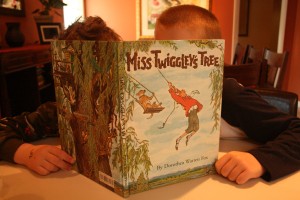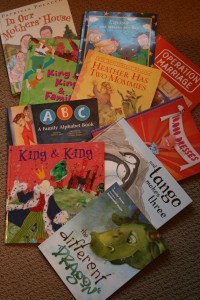Gilda, see a close friend of ours from San Francisco, web came with her partner Krista to join us for a month in East Africa. Gilda has contributed to Out & Around twice before in her stories Coming In and Gilda finds the Supergay Palestinians. We’re thrilled to have her share with us her surprising travel experience in Zanzibar…
During my research of Tanzania I looked forward to many things the country had to offer, such as the Serengeti, safaris, archeological sites and Zanzibar. The one thing I didn’t look forward to was the uncertainty of what would happen if Tanzanians found out I was in a relationship with a woman.
During safari, Jenni, Lisa, Krista and I met two American travelers, Alan and Troy*. It was easy to see Alan was the quick-witted, self-deprecating one and Troy was the “face jockey” (the guy with little personality, but a handsome lady-attracting face). Interestingly enough, “face jockey” was a term I learned from Alan, which shed a little light on their dynamics. The guys seemed to be traveling the same Tanzanian route as us and we later saw them at Kendwa Beach in north Zanzibar.
Our hotel was hosting a party and we planned to have dinner and drinks with Alan and Troy. The six of us sat down to a beautiful candle and torch lit table. The conversation flowed easily as we discussed books, travel and current events. At some point, Alan and Troy asked us how we all met and how serious our respective relationships were. While we trusted that Alan and Troy wouldn’t extort money from us for our secret, we all felt some hesitation about sharing.
It was the first time in Tanzania that anyone had asked us about the status of our relationships. However, we took a chance and shared our respective coupling stories. We figured, how bad could their reaction be? They listed to NPR, after all. Oddly though, the guys then asked if we had all slept with one another at any point. Providing a little gay relationship 101, we told them that we were in monogamous relationships and just because we are attracted to women didn’t mean we indiscriminately slept with all females.
The two were not fazed by our sexuality (although maybe a little disappointed by our lack of promiscuity). In fact, they appeared stunned, if not a bit outraged, when we told them being gay in Tanzania was punishable by imprisonment, which is what made the events of that night especially perplexing. They bought a couple of bottles of wine for the table, a classy gesture of a new friendship, I thought.
During dinner I sat between Troy and Krista, my partner of three years. Several times during our meal, Troy leaned in intimately to say something and placed his hand on the small of my back or knee. Troy told me he was going closer to the stage to watch the youth dance show. He stood expecting me to join him before he left the table. Instead, I told him to enjoy himself.
The wine was poured and the party began, we all left the table and sat at the bar. That’s when Troy turned up his “charm” and told me I had beautiful hair and skin. I took his flirting in stride (and I wondered if this stuff worked on his other lusted-after ladies). Troy, however, felt he had to make his actions crystal clear by announcing, “I’ve been flirting with you all night and you have no idea!” He acted as if I was too dense to understand him coming on to me and that I was about to miss out on his amazing gift of manliness. I pondered, did this fool actually believe I was just hanging out with Krista waiting for a man to come along with an offer?
Of course, Krista heard Troy’s declaration. She and I laughed as I explained that I was aware of his intentions (even a rock would have noticed) but was ignoring his advances. Even though Troy seemed to be too narrowly focused to understand it, Krista and I were in love and secure enough to know that even the best “face jockey” could never come between us. I’m not sure if Troy’s confidence was supercharged by alcohol; if he really thought he could “turn” me; or if he generally and regularly disregarded lesbian relationships or romantic partnerships of any kind, for that matter.
I will never know what caused Troy’s behavior, but I do believe that if Krista were a man, Troy would not have let the compliments run from his mouth or his hands fly so freely, at least not in front of a boyfriend. Needless to say, I was disheartened by that night’s events. It’s ironic that I was fearing Tanzanians’ negative reactions to my sexuality and was sadly reminded that some of my fellow Americans – even the world traveling, public radio listening ones – still require a lesson in respecting and understanding the seriousness of lesbian relationships.
*Names have been changed.
Never missing a teachable moment, more about Supermom, Supergay, and Superwriter Cheryl Dumesnil contributed this article to Out & Around. We love her as our California correspondent writing about the crossroads of parenthood, lesbians and suburbia.
The Queerest Book on the Shelf or When Lesbo Mom Reads to the First Graders
My kids’ bookcase is full of banned books: Heather has Two Mommies, 10,000 Dresses, And Tango Makes Three, The Boy Who Cried Fabulous, to name a few. However, when the principal of my oldest son’s elementary school asked me to volunteer as a guest reader on “Read Across America Day,” I didn’t even consider reading one of these. Not because I’m some big-chicken-scaredy-cat. No, I’m not adverse to rustling up some controversial grub in the service of a larger ideal like queer visibility. In fact, each year I gift my sons’ teachers with at least one of these titles, to make sure my kiddos have books in class that reflect their family and community. But it wasn’t the Queer Activist in me who chose to read Miss Twiggley’s Tree by Dorothea Warren Fox to my son’s first grade class; it was the Mom and Educator in me.
The Mom in me picked dear ol’ Miss Twiggley because it was my one of my favorite books when I was a kid. In fact, my own mom read that book so many times that my whole family could recite its rhyming lines. The Educator in me picked the story because it’s full of Important Lessons about Bravery, Generosity, and Accepting Our Differences. The Queer Activist? Well, she was down with the choice because she knows Twiggley is one of the queerest dames in town.
Check it out:
Funny Miss Twiggley
Lived in a tree
With a dog named Puss
[ed. note: Seriously?]
And a color TV.
It gets better:
She named her dog Puss—
He didn’t mind that.
“My very best friend,”
He said, “is a cat.”
[ed. note: Uh huh.]
And the kicker:
Old Miss Twiggley
Was friendly with bears.
[ed. note: Yes, it really says Bears.]
“They shed on the sofa,” she said,
“but who cares!
They don’t find me odd
And I’m grateful for that.
I don’t think they’d mind
If I slept in my hat.”
And just to be sure . . .
she slept in her hat.
[ed. note: Go Twiggley.]
Okay, So Miss T’s lifestyle is a little unusual. And the townspeople totally have their Underoos in a twist about that. The town dogs bully poor Puss whenever he goes grocery shopping. Miss T, well, she hides out in the tree all day. And why wouldn’t she? She’s got “the mayor’s wife” talking smack about her to anyone who will listen, calling our dear Miss T “disgraceful” and “a nuisance,” insisting, “My husband must know / Of a town law,” said she. / “Against things of that kind / Going on in a tree.”
Really? “Town law”? “Things of that kind”? Come on. How queer can this story get?
But, all “reading through a rainbow lens” aside, the truly subversive beauty of this book is that it doesn’t establish a recognizable identity category that makes Miss Twiggley the town oddball. She’s not the wrong race; she’s not wrongly gendered; she’s not the wrong sexual orientation, religion, or political party. She’s just quirky. Which means anyone can relate to her, because we’re all quirky, right? She’s not an “other.” She’s not a “them.” She’s an “all of us.”
See, that’s the shortcoming of identity politics: it always breaks down into “our group” versus “their group.” The discourse disintegrates into cranky six-year-olds (or sixty-six-year-olds, as the case may be) screaming at each other, in that did-not/did-too/did-not/did-too way, which devolves into the fingers-in-ears-la-la-la-la-I’m-not-listening-to-you thing, which ultimately gets us nowhere we want to be.
Take for instance Rush Limbaugh’s recent media-attention-getting move. Okay, he makes a trademark nasty comment. (Big surprise.) Next day, my Facebook page has broken out in a Repeal Rush Rash—friends posting petitions to sign, boycotts to join. So, yes, right on! Eliminate hatemongering! Except guess how my FB friends are introducing these Shush Rush opportunities? “Let’s kick this asshole off the airwaves!” Hmmm. Remember Audre Lorde’s essay, “The Master’s Tools Will Never Dismantle the Master’s House”? Or that whole eye-for-an-eye business? No matter how closely Rush might resemble an orifice that spews diarrhea, in our response to him, could we use language that doesn’t also stink like a steaming pile of hatred? You know, higher road, and all that?
Anyway, back to the righteous Miss T. Guess what happens? Well, the whole town floods (in a sing-song rhythm that’s not at all scary to kids), washing out every home, except the one in the tree. And what does our heroine do? She puts Puss and her crew of Bears to work, expanding the tree house so all the townsfolk can live with her (until, presumably, FEMA helps them rebuild, in like, fifteen years). And yes, the Twigster’s new tenants include the mayor’s wife, who sleeps “safe and sound” in Miss Twiggley’s bed, wearing Miss Twiggley’s hat. [ed. note: Mm hmmmm.]
Now, I realize I could have chosen a book about a kid who has two moms, and maybe that would have helped my own little guy feel better represented in his class. But I chose a book about difference in general, and I’d like to think maybe that helped not just my guy, but, say, the kid in the back row who wants to share his encyclopedic knowledge of ocean predators, all day; or the six-year-old stomach cancer survivor, whose short crop of feather-fuzzy hair is a testament to her chemo days; or the first-generation U.S.-born children whose families honor cultural traditions the Anglo kids are learning about for the first time; or the kids who don’t know what to do when someone else’s differences make them uncomfortable.
Which begs the question: What can we do when we feel uncomfortable in the face of our differences? Well, according to Miss Twiggley and the ragtag crew of first graders I was hanging with yesterday, instead of being scared and mean, we can be curious and brave.
Sounds like a good start to me.
Miss Twiggley’s Tree, copyright 1966, by Dorothea Warren Fox, Purple House Press.







